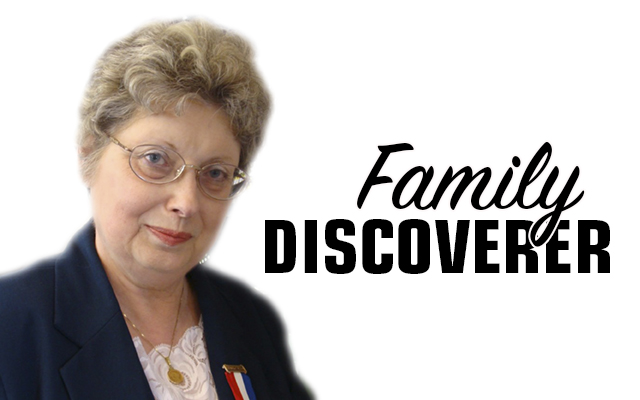Every hobby has a language of its own and genealogy is no different. Those of us who have been doing genealogy for years forget that newbies or non-genealogists may not understand what we mean when we talk or write about genealogy. I suspect I’ve been guilty of this myself.
To make amends, here’s a list of commonly used terms in genealogy and what they mean.
Pedigree charts show several generations of an individual’s family. They allow the researcher to view the names and dates of multiple generations at once.
Genealogical software is just what it says and is a great help to genealogists in organizing data.
Lineage means your descent from an ancestor, commonly referred to as “line.” Direct ancestry is descent through multiple generations such as mother, grandmother, great-grandmother, second great-grandmother. It’s a straight line from one generation to the next.
Collateral ancestry means descent from an uncle or aunt, and collateral relatives include cousins.
Paternal means descent through a male ancestor such as your father. Maternal ancestry means descent through a female ancestor such as your mother.
Primary sources are first-hand accounts of an event or official records, such as vital records (birth, marriage, death), baptism records, letters, diaries, affidavits and others. These are generally considered the gold standard in genealogical research. The closer to an event a record is made the more reliable it is likely to be.
Secondary sources include newspaper accounts, obituaries, and articles. Secondary sources can be valuable but primary sources are preferred.
Given names are first names such as Martha; surnames are family names such as Smith or the married name for a woman such as Jones. Thus, Martha Smith Jones.
Brick walls occur when you hit a dead end in your research and can’t trace a line further.
Probate records contain the disposition of the estate of a deceased person. Probate records also record name changes, adoptions, and guardianships.
Adoption records are closed proceedings and confidential.
Intestate means a person died without a will and the court decides who gets what. Tip: Make a will.
Censuses are usually taken every 10 years by the federal government but states and sometimes cities also took censuses, and the frequency can vary. Questions in these censuses changed over time. Censuses allow tracing an ancestor through time and give a snapshot of the family.
City directories contain listings of inhabitants, residence, occupations, workplace, etc. Some list if a person moved or died. Directories are more common in cities than rural areas.
Naturalization is the process where a person becomes a U.S. citizen. Laws varied over time, but most records will list native country, date of arrival, and date when citizenship was granted. Some will include names of spouses and children.
Oral history means information not written down and passed among generations. Errors can be common in these so genealogists try to verify the stories if possible.
I hope this little dictionary will clear up any questions you may have on some of the common terms genealogists use.
Columnist Nancy Battick of Dover-Foxcroft has researched genealogy for over 30 years. She is past president of the Maine Genealogical Society, author of several genealogical articles and co-transcribed the Vital Records of Dover-Foxcroft. Nancy holds an MA in History from UM and lives in DF with her husband, Jack, another avid genealogist. Reader emails are welcome at nbattick@roadrunner.com.








